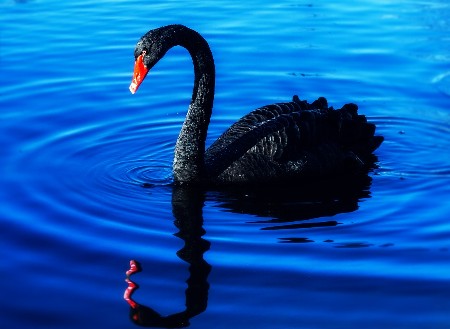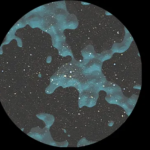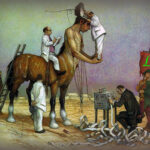According to many climate scientists, this year is turning out to be a series of Black Swan events. What does that mean?
In Europe, during the Middle Ages, Black Swans were unknown. It wasn’t until Europeans started sailing beyond the continent that these creatures were discovered, no longer mythological but real. Before the discovery finding this species of bird indeed would have been rare to impossible giving birth to the notion of events so rare they could go by the name, Black Swan.
The term persists today describing something rare and unusual, an outlier from the norm. But it turns out Black Swans aren’t all that rare. There are an estimated half-million alive today largely found in the Southern Hemisphere.
Lately, extreme weather occurrences have been deemed Black Swan events. What are we talking about?
- Torrential rains and floods in China, Germany, Belgium, and India leading to hundreds of deaths and billions in property damage in just the last few weeks.
- Persistent heat domes this summer leading to increases in human deaths as well as the destruction of billions of animals in coastal ecosystems along the Pacific coast of Western North America.
- Wildfires destroying hundreds of thousands of hectares of North American forests because of prolonged drought conditions and intense heat.
- Siberian wildfires and intense heat this spring and summer in places that historically have been deemed the coldest inhabitable cities in the world.
It is not just that these events have all happened this year, but that in many cases these are a repeat of what is becoming persistent. For example, we have witnessed the growing megadrought in the U.S. Southwest with consequent firestorms that have engulfed California towns and valleys over the past few years. Similar wildfires have driven Australians out of their towns and homes as that continent continues to dry out. To therefore call what is happening rare is inconsistent. But you can refer to them as Black Swan events because they are not rare and the reference may make people pay attention.
There is an ongoing debate in the public place about weather and climate. Is what we are seeing just variable weather, or is it evidence of anthropogenic climate change.
Where that debate appears to be coming to an end is among global political leaders such as German Chancellor Angela Merkel who recently toured areas of Germany inundated by abnormal flooding with more than 100 Germans dying, and later stated, “We have to get faster in the fight against climate change. The sum of all events that we are witnessing in Germany and the forces with which they occur all suggest that it has something to do with [it].”
A similar observation from Aaditya Thackeray, an Indian state Environment Minister, in response to witnessing massive amounts of rain in Mumbai that caused 30 deaths, stated “We have been talking about climate change and it is happening.”
Canada’s Prime Minister, Justin Trudeau, in a recent Globe and Mail interview, noted that the fires and June heatwave, that set 1,200 new temperature records across North America, are a reflection of climate change. He added further, that witnessing these events was an incentive to speed up the government’s mitigation and adaptation agendas. “We simply have to be even more aggressive…Those [referring to climate change policies] are things we are doing now that we can accelerate.”
And President Joe Biden, in a departure from the previous U.S. administration, named climate change as the “number one issue facing humanity.”
Papers like The Globe and Mail and The Guardian acknowledge Black Swan events, in weather, are directly linked to climate change. But other members of the Fifth Estate are far more reluctant to forge that link.
In Akshat Rathi’s July 20, 2021, Bloomberg Green Daily he writes about this reluctance from British media’s recent coverage of Germany’s floods and Western North America’s heat dome and unprecedented wildfires, noting that neither the BBC nor SkyNews in reporting these stories mentions global warming. And if they do they raise the variable weather versus climate change debate.
Similarly, in U.S. coverage of wildfires and record heat in California and Oregon, local media outlets, states The Guardian, have never linked the events to climate change.
Yet we know our planet’s atmosphere has heated up since the Industrial Revolution with the increase already at 1.2 Celsius (2.16 Fahrenheit) above mid-19th century levels. And we know that with the number already this high it is likely we will blow past the Paris Climate Agreement lower target number of an increase of 1.5 Celsius (2.4 Fahrenheit).
In a recent interview with Mother Jones, Jennifer Atkinson, Professor of Environmental Humanities at the University of Washington, in speaking about the reality of climate change and recent U.S. weather events, stated “It’s no longer a vague concern about things happening in the future.” In other words, we are living with climate change now.
Climate scientist, Ed Hawkins, at the University of Reading, UK, reinforces Atkinson’s viewpoint in a recent tweet which states, “The science has moved on and it would be great to see that reflected in the news coverage of extreme weather events, rather than the current inaccurate stock phrase.”
And speaking of Black Swans and climate change extreme weather as Black Swan events, it should be noted that so much of global warming’s daily impacts remain unreported in the media because they are not deemed newsworthy. For example, here in Toronto, we are seeing an uptick in overnight low temperatures. But who other than the weather page reports higher than normal lows that no longer give plants and animals relief from daytime heat. And who then states that these record high nighttime temperatures are indicators of global warming and an even more significant sign of climate change than Toronto daytime highs exceeding 30 Celsius (86 Fahrenheit) in record numbers.
Rathi of Bloomberg notes that there is a danger in shifting baselines when changes to daily weather are incremental and subtle so that they effectively are ignored. I can think of some Southern Ontario and Toronto examples such as:
- Increasing cases of Lyme Disease in Southern Ontario from the expanded range of the ticks responsible for spreading it.
- More frequent flooding events from heavy rainfalls leading to almost annual record-setting new highs in property damage to homes and businesses.
- The increasing number of 30+ Celsius daytime highs, and 20+ daytime lows in the summer with Toronto setting up more cooling centres to help those deemed most vulnerable.
- Changes in migration patterns of birds with earlier arrivals of common species each spring, and later departures in the fall, and even some migratory species overwintering rather than flying south.
These are the shifting baselines of incremental global warming that go unreported often, and make it more likely that the average person starts accepting these subtle changes as normal without recognizing they are living through climate change.
And a final word about Black Swan events. Knowing that these swans are not as rare as early European explorers thought, I’m fine in calling all of the above Black Swan events because they aren’t rare, and if that increases public awareness through the use of the phrase, that’s great.
















